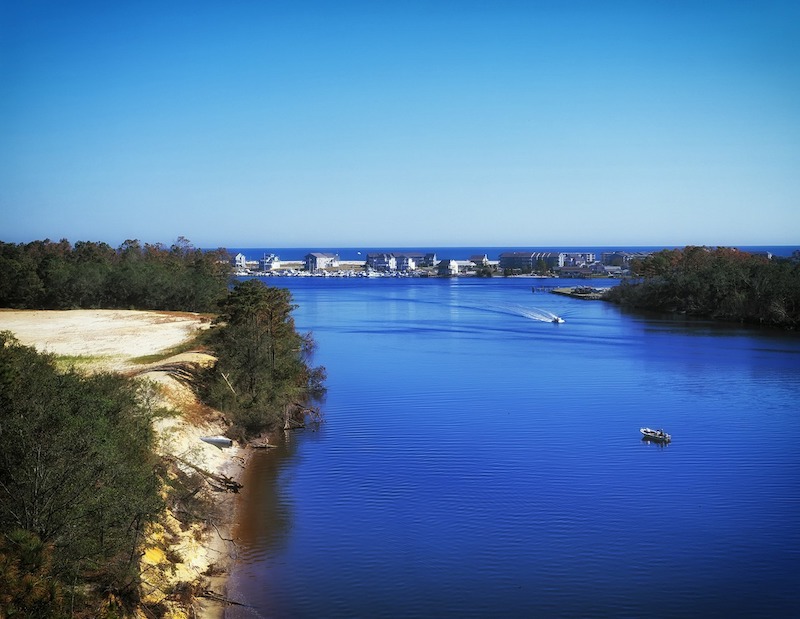A 2012 law that restricts taking into account the latest research in climate science could make North Carolina more vulnerable to Hurricane Florence.
The law banned policy makers from using recent climate science data to plan for sea level rise including things like elevation requirements on new buildings in flood-prone areas. The law was reportedly a response to a 2010 Coastal Resources Commission report that predicted sea levels on the Carolina coast would rise 39 inches by 2100.
The bill required the commission to write a new sea-level-rise report that limited its scope to the next 30 years. It was also required to take into account scientific studies refuting sea level rise, and to weigh the economic cost of limiting coastal development.
Scientists say the law is misguided, and will ultimately hurt the region’s ability to withstand damage from major storms. According to a recent article by a retired Duke University coastal geologist, the state should increase setback lines for coastal development, raise the height of buildings, move threatened buildings, prohibit rebuilding of storm-destroyed buildings, and begin a planned retreat from the rising water line.
Related Stories
Codes and Standards | Nov 29, 2021
FAA seeking design of air traffic control towers of the future
Call for design submissions for safe, efficient structures.
Codes and Standards | Nov 28, 2021
Efficient electric water heaters in multifamily buildings significantly reduce carbon emissions
In buildings with 5+ units, water heating uses more energy than space heating, cooling, or lighting.
Codes and Standards | Nov 23, 2021
New York’s Labor Law Section 240 and how it affects general contractors
The ‘Scaffold Law’ was first enacted by the New York State Legislature in 1885 and is one of the single most-used laws in construction accident cases.
Codes and Standards | Nov 22, 2021
ABC’s Construction Technology Report finds focus on solving operational problems
More than half rely on project management software.
Codes and Standards | Nov 22, 2021
Contractors say 811 utility location system has significant flaws
More than half of firms in survey report damages, near misses because lines were unmarked or marked incorrectly.
Codes and Standards | Nov 19, 2021
Creating net-zero/net-positive buildings is top priority in Green Building Trends 2021 report
Findings also demonstrate compelling business case for building green.
Codes and Standards | Nov 19, 2021
Construction Startup Competition 2021 awards highlight tech innovations
AI-powered software to identify and explain critical issues in construction contracts takes top prize.
Codes and Standards | Nov 18, 2021
Infrastructure bill contains $5 billion for energy efficiency in buildings
Wide range of programs to reduce energy use, improve materials, train workers.
Codes and Standards | Nov 17, 2021
Skanska will provide embodied carbon assessments on all new projects over 53,000 sf
Will use the Embodied Carbon in Construction Calculator it helped create.
Codes and Standards | Nov 16, 2021
NOAA, Univ. of Maryland, and ASCE partner on climate-smart engineering codes, standards
Efforts will account for climate change in future infrastructure design and construction.

















